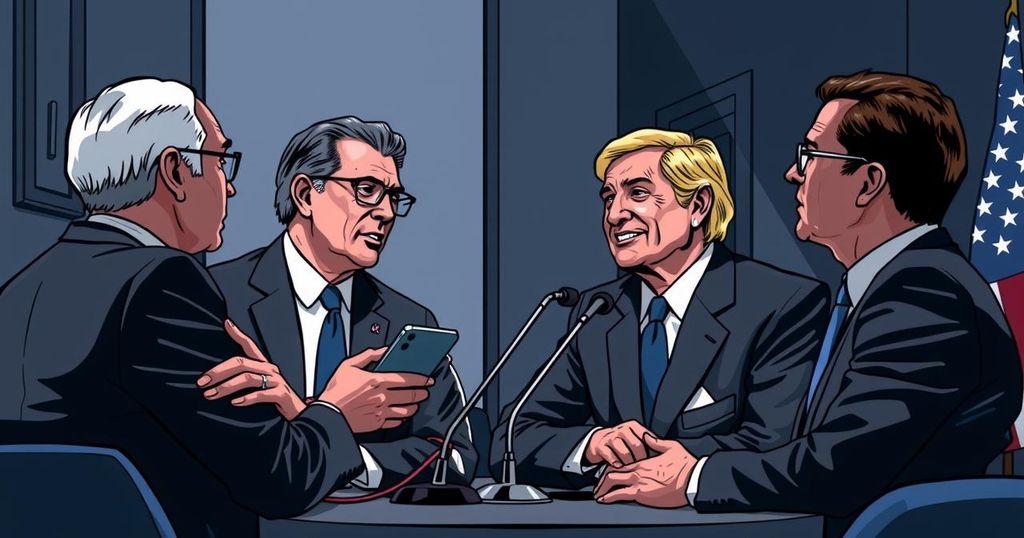Democrats remain divided post-election about the seriousness of their political problems. Some attribute Trump’s success to external factors like inflation, while others see a need for fundamental reform. With the upcoming DNC leadership election, the party’s direction will be pivotal as they navigate internal disagreements and external challenges from Trump’s administration.
Approximately one month following a significant electoral defeat that revealed fundamental fractures within the Democratic Party, there persists a notable division among Democrats regarding the severity of their political challenges. While some party leaders attribute Donald Trump’s resounding electoral success to a global anti-incumbent sentiment influenced by inflation, others perceive an acute crisis necessitating substantial reforms to bolster the party’s public image, messaging, and economic strategies.
Trump’s decisive victories across all battleground states in the recent elections, marking him as the first Republican to secure the national popular vote since 2004, raise critical questions for the Democratic Party. Although nearly half of the electorate opposed Trump, he won by a narrow margin of 1.6 percentage points in the popular vote. As Democratic leaders reflect on these results, there is an urgent need for a unified approach to address the complexities of their political landscape, highlighted by a lack of cohesive leadership and strategy.
Some notable figures, such as Colorado Governor Jared Polis, view the election results as a signal of potential, suggesting that minor adjustments in voter appeal could have resulted in victories. However, leaders like Ken Martin express the view that the Democratic Party has lost touch, indicating a need for introspection and a reevaluation of the party’s commitment to addressing constituents’ concerns. This internal strife emerges against Trump’s impending presidency, which is expected to initiate significant policy shifts that may further polarize the political climate.
In response to their electoral setbacks, various Democratic factions are conducting post-election evaluations, yet there remains a lack of collaboration and unified action among them. Priorities USA, a prominent super PAC within the Democratic framework, is set to release recommendations aimed at revitalizing voter engagement and presenting an affirmative alternative to Trump’s agenda.
Furthermore, dissenting voices from the party’s progressive wing, including Senator Bernie Sanders and Representative Ro Khanna, advocate for authentic changes to the party’s economic messaging in favor of the working class. This calls into question the party’s current trajectory and its ability to engage crucial voting demographics effectively.
As the Democratic National Committee prepares for the election of a new chair, the outcome will serve as a critical indicator of the party’s future direction. While some, like Wisconsin Democratic Party Chair Ben Wikler, argue against a perceived crisis, asserting opportunities for regaining voter trust, others remain doubtful of the party’s capacity to enact transformative change in the face of rapid political shifts. Democrats must carefully navigate their internal dynamics and external pressures to formulate a cohesive and viable path forward.
The article discusses the responses of Democratic leaders following a significant electoral defeat and the implications of this loss on the party’s future direction. Following Trump’s victory, there are contrasting views among party members regarding the severity of the electoral results and the necessary steps to reengage voters. This discourse takes place during a time of uncertainty as Trump prepares to take office again, reflecting on the broader national implications of the election results.
In summary, the Democratic Party finds itself at a crossroads following a challenging electoral defeat, with internal disagreements on the seriousness of their political issues. The divergence in perspectives among party leaders highlights a critical need for coherent leadership and strategic clarity. The forthcoming selection of a new chair for the Democratic National Committee reflects the broader concerns regarding the party’s image and ability to connect with a diverse electorate moving into future elections.
Original Source: abcnews.go.com






